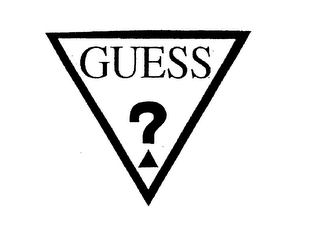 When a founder starts a business, he or she has many decisions to make. One of those is whether he or she should own assets of the business personally or whether he or she should form a corporation or LLC to own the assets of the business and bear the liabilities of a business. Founders are often quick to form a corporation or LLC to operate the business to shield themselves from personal liability arising from claims against the business.
When a founder starts a business, he or she has many decisions to make. One of those is whether he or she should own assets of the business personally or whether he or she should form a corporation or LLC to own the assets of the business and bear the liabilities of a business. Founders are often quick to form a corporation or LLC to operate the business to shield themselves from personal liability arising from claims against the business.
But occasionally founders and business owners operating under a corporation or LLC seek to register and own trademarks personally rather than have them owned by the corporation or LLC. This is probably a mistake that increases their risk of being personally liable for products or services sold under the trademarks as explained below.
Quality Control
Trademark owners are required to control the quality of the goods or services sold under the mark. If a trademark owner fails to control the quality of the goods or services, trademark rights can be lost. The requirement that a trademark owner control the quality ensures that customers expectations are met with respect to goods or services sold under the mark.
If a trademark is owned/registered in the founder’s name but used by his/her wholly owned corporation or LLC, the founder is likely (implicitly or expressly) licensing the use of the trademark to the corporation or LLC. The founder is a licensor of the trademark to the corporation or LLC, who is a licensee/user of the trademark.
An injured plaintiff might assert that the founder (e.g. the trademark licensor) is personally liable because, as the trademark owner, he/she controlled the quality of the goods/services that resulted in the injury. Therefore, owning a trademark in your own name rather than having your corporation or LLC own it may, at least partially, destroy the purpose of forming a corporation or LLC in the first place, which was to limit personal liability.
Kennedy v. Guess
In the case of Kennedy v. Guess, Inc., 806 NE.2d 776 (Ind. 2004), the Indiana Supreme Court found that Guess, Inc. could be liable for alleged defective products sold bearing its licensed GUESS trademark. While this case does not involve the founder being held liable for a defective product of its company, it does illustrate that a trademark owner/ licensor–which is what a founder-trademark-owner is–could be liable for defective products sold by a licensee using its mark.
In the Guess case, Kaye Kennedy purchased a GUESS watch and received a free umbrella bearing the GUESS logo. Kaye’s husband, Richard, took the umbrella to work where a co-worker swung it from the handle. The umbrella’s shaft separated from the handle and struck Richard in the nose and sinus, causing injury.
The Kennedys sued Guess Inc., as well as Callanen, a corporation, licensed by Guess to market Products bearing the GUESS logo, including the watch and umbrella. The court concluded that “Indiana common law should treat trademark licensors as having responsibility for defective products placed in the stream of commerce bearing their marks…” The court also said that “Consumers rightly expect that products bearing logos like ‘Guess’ have been subject to some oversight by those who put their name on the product, but those same consumers can well imagine that in modern commerce the products they buy may have actually been manufactured by someone else.” The process of sorting out comparative fault between Guess and the other defendants was ultimately left to the jury.
The Guess case shows that a trademark licensor might be liable for defective products or services provided by a trademark licensee. Other cases in California have reached the opposite conclusion. See Emery v. Visa Internat. Services Ass’n, 95 Cal.App.4th 952 (3d. Dist. 2002). Nevertheless, the leading trademark treatise provides “In many cases, legal responsibility under one of the relevant legal theories seems impossible for a trademark owner to avoid.” McCarthy on Trademarks 18:75 (2017).
Solutions to Mitigate Risk: Legal Entity Ownership of Trademarks
To avoid the possibility of personal liability as a founder-trademark owner, simply start with the corporation or LLC using, owning, and registering the mark from the founding of the business. This can be done if the corporation or LLC was formed from the beginning of the business.
If trademark ownership is currently owned in the name of the founder, the trademark, and associated goodwill, can be transferred through an assignment to the corporation or LLC. By doing this, use of the mark and ownership of the mark will then reside in one entity. Liability on the basis of trademark law should be reduced or avoided at least going forward after the transfer as the founder is no longer the trademark owner.
There are cases where a person starts out in business without forming a corporation or LLC and operates as a sole proprietor. In that case the person will own the trademark. However, if and when that person forms a corporation or LLC for the business, the trademark can be transferred to the legal entity to avoid potential personal liability arising from trademark ownership.